The Peter Elliott interview: How silver still bothers an Olympic man of steel
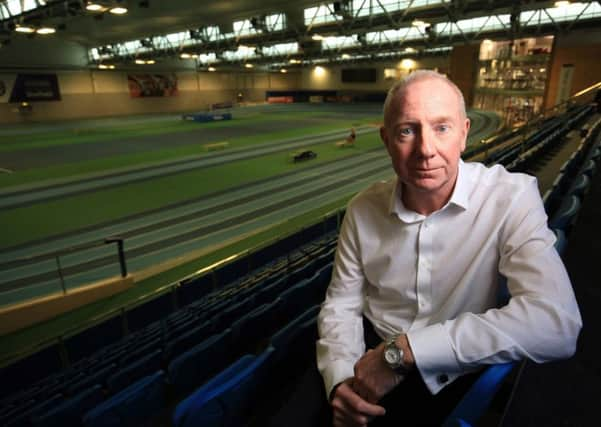

Peter Elliott had flown out to Seoul in South Korea in 1988 a troubled man as a national newspaper campaigned against his Great Britain selection for the 1500 metres ahead of reigning champion Sebastian Coe.
He injured himself while out there. He needed injections in his abdomen just so he could warm up. He ran seven races in nine days as he was also entered in the 800m.
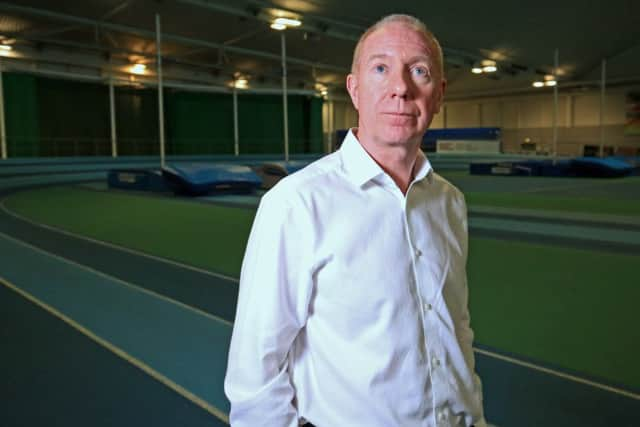

Advertisement
Hide AdAdvertisement
Hide AdComing second was a near-miracle, Elliott’s finest ever achievement on a running track. He finished only one place out of the medals in the shorter of his two events as well. Yet he travelled wearily home to Rawmarsh in Rotherham ready to retire.
“My memories are tinged,” he recalls. “There was all the controversy that surrounded it. I went out there under a cloud. It took me until 2000 to appreciate that medal.
“I was disappointed with the silver. I’d dreamed of being an Olympic champion since I was a kid. I had a pain in my abdomen before the final of the 800m and had to have an injection. The rounds of the 1500m came after. I’d jog, stretch, have another injection, do my strides, then race.
“I came back and thought my career was over.”
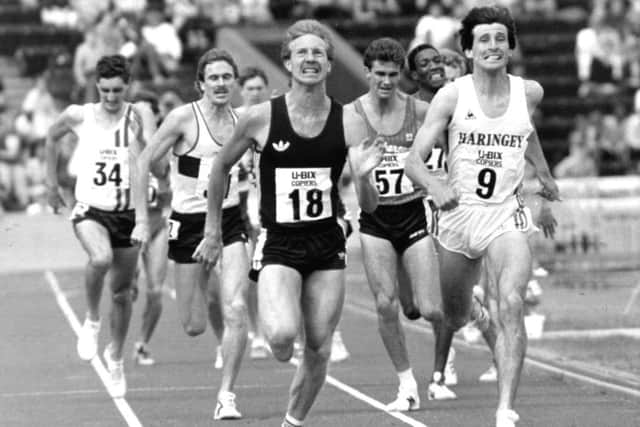

Today, Elliott MBE is 55 and a leading figure in the provision of sports medicine and science for athletes on the United Kingdom’s ‘World-class Performance Programme’ who are targeting the Olympics, Winter Olympics or Paralympics.
Advertisement
Hide AdAdvertisement
Hide AdHe’s director of operations at the English Institute of Sport - an organisation based in the Sheffield building of the same name - and oversees 10 sites as far afield as Gateshead and Bath.
We greet each other like old friends, which we are, and sit chatting in a conference room at the cavernous EIS. There’s a bit less hair these days. He’s not as ginger as he was, a touch greyer now than he’d prefer.
Retirement from running wouldn’t actually come until 1995, seven years after his period of Seoul-searching. 1990 was lit up by a Commonwealth Games 1500m gold medal and the best form of his life. But the injuries which had always blighted his career were never far way.
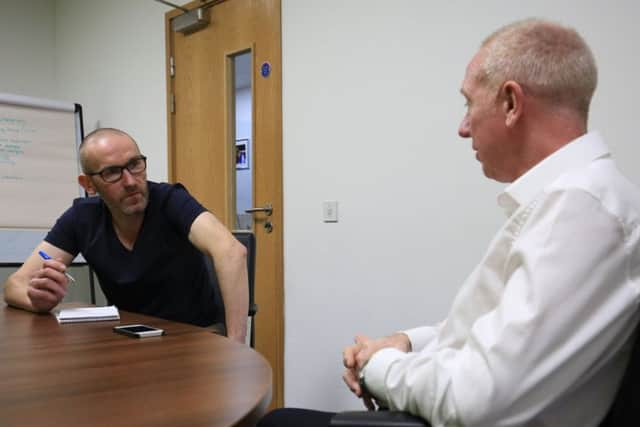

“I last ran in anger on the track in Rotherham,” he says. “I didn’t realise at the time that was going to be my last race. That was 1992, the year of the Barcelona Olympics, and I was 30.
Advertisement
Hide AdAdvertisement
Hide Ad“It was a mile race. I won but I tore my hamstring during the race. I’d been to see my physio that day because I’d had a problem with my hamstring and he’d advised me not to run. But because I’d missed a Rotherham mile race in 1989, which was a big ‘Peter Elliott Night’, I thought: ‘I’m not letting the people down again.’ It stopped me going to the Olympics.
“I carried on for another three years, having surgery and one thing and another. It all goes back to a bulging disk in my back. I was training to get injured. I wasn’t training to compete.”
One day, he just stopped. But 1988 continued to rankle.
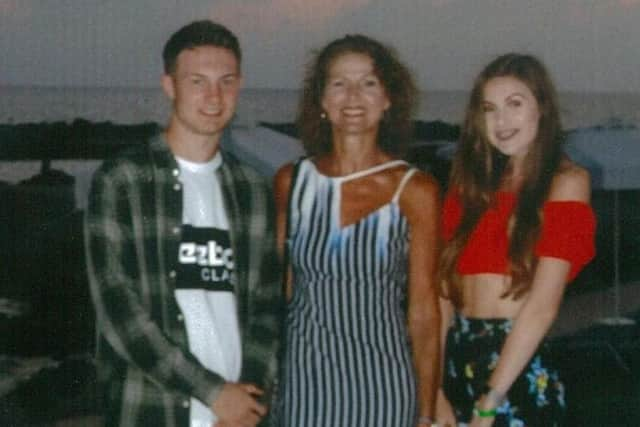

He had received more than 1,000 good-luck cards through the post, but the Daily Mirror’s backing of Coe and its infamous ‘carthorse’ cartoon brought a sackful of trouble.
“After the third piece of hate-mail, I told my mum and dad to just burn any others that came in,” he says. “But I’ll always remember the first. It said: ‘I’m proud to be British, not proud to be linked with you. I think you’re despicable and I hope you fall flat on your face.’”
Advertisement
Hide AdAdvertisement
Hide AdAt 11 stone 10 lbs - less than a stone and a half above his racing weight of 30 years ago - Elliott cuts a smart, lithe figure. The shirt is cream, open-necked and cufflinked. The watch looks expensive, the black shoes are classily sharp.
Is this really the mean middle-distance hombre New Zealand great John Walker once described as the toughest man ever to lace up a pair of spikes?
It is. I know. I was a regular training partner.
He was among the world’s elite runners but a great, down-to-earth bloke and loyal friend. I liked that. I was prepared to run myself into oblivion for him. Not once did I quit. He liked that.
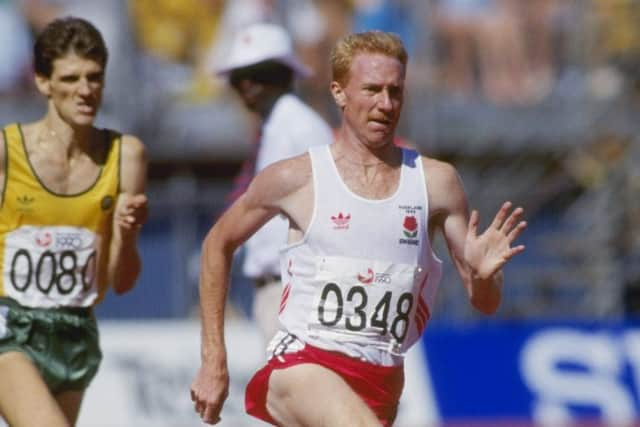

“The 4 x 400m session,” he remembers. “The one with a five-minute recovery between each one. It doesn’t sound that hard, but you’d run it at race pace: 50/51 seconds a lap.
Advertisement
Hide AdAdvertisement
Hide Ad“You get through the third and the lactic acid is coming out of everywhere. You’re violently ill and your coach (Pete Watson) is screaming at you to get up off the track.
“A sponsor of mine at the time once came down to watch. I got to the end and couldn’t move. He went to call for an ambulance! Someone told him it was like this every time.”
Elliott was a full-time athlete in the latter part of his career but had held down a 40-hour-a-week job as a British Steel joiner while running 70-plus miles a week during his rise to prominence
“The back was a legacy of leaving school, working at British Steel, getting up at 5.30am and running when the street lights were still on, then pounding the roads after work in the dark,” he says. “It was just overload.”
Advertisement
Hide AdAdvertisement
Hide AdHe finally found a measure of peace in 2000 while working for Nova International, a company, run by ex-Olympian Brendan Foster, which stages major running events such as the Great North Run.
“I was having to write reports on the Sydney Olympics that year,” he says. “Following it on a daily basis made me realise it’s actually quite difficult to win a silver medal. It struck home that it wasn’t such a bad achievement. I’ve learned to love that medal a bit more in the years since.”
Nowadays, he bikes regularly and runs on a treadmill, although he isn’t even the fastest of the Elliott clan in the spacious family home in Wickersley, Rotherham.
Wife Diane is 51 and enters road races while daughter Lucy turns 15 next month and has inherited her father’s talent.
Advertisement
Hide AdAdvertisement
Hide Ad“I’m just hoping Joe doesn’t take up running because then I’ll be slowest in our house,” Elliott Senior laughs.
Son Joe is 17, hits the gym and is bound for university later this year to study music production. “What kind of music does he like? Well, it’s a noise,” Dad says. “I’ve become my old man now. ‘Turn that rubbish off.’ We get in the car and Joe puts a CD on. I’ll go: ‘Next. Next.’”
The hunger to improve himself still burns. In his 15 years in various roles with the Institute, Elliott has earned an HND in business and management from Brighton University and has a Bournemouth Uni distance-learning honours degree in international business and management.
“Of course I would like to be an athlete now,” he says. “We’re in an environment where no stone is left unturned. If an injured athlete phones the desk here for an appointment, it needs to be answered on the first ring. As soon as it’s answered on the first ring, that athlete is on the road to recovery. When it goes to the second or third ring, they’re not on the road to recovery.”
Advertisement
Hide AdAdvertisement
Hide AdHowever, part of him will always be the Yorkshire lad fighting the world against the odds. Rocky chopping wood in the forest. Alf Tupper beating everyone after arriving late. British Steel joiner taking on the world’s best on the two bags of crisps his mum, Sylvia, always packed into his work snap-box.
“I go on the turbo in the garage, and it’s a typical garage,” he says. “There’s rubbish everywhere. “I really like that. We have all the science and back-up availabe for athletes now, but in my garage I’m back in the 80s.”
He’s made tea. My mug has the EIS branding on it. His is a big Union Jack affair. He’s still representing his country after all these years, no matter what the Daily Mirror thinks.
Commonwealth gold meant so much to him, more than the Olympic silver had two years earlier.
Advertisement
Hide AdAdvertisement
Hide Ad“I had done secret time trials,” he says. “The times were so good, I made sure word got out. I let John Walker know because he couldn’t keep anything quiet. I stood on the startline and I knew I couldn’t be beaten.
“Finally, I was on the podium at a major Games as a champion. The Queen was in the stands.”
Her Majesty was nowhere to be seen in the muddy fields of Rotherham where Elliott’s prowess became glaringly apparent as a cross-country runner in the colours of Rawmarsh Comprehensive School.
“The first race was at Brinsworth,” he says. “I was leading and following directions from marshals.
Advertisement
Hide AdAdvertisement
Hide Ad“I got to a roundabout and took a wrong turning. Next thing, I was being pulled over by a police Range Rover. Two coppers jumped out. I’d run on to the Parkway and finished up on the M1.”
Appropriately, his last race, like his first, would be in his home town.
He went out a winner. First place. Not second. Not Seoul silver.
“The medal’s in the back of cupboard at home,” he says. “It’s not on show. If there was a fire at home, it wouldn’t be one of the first things I rescued. It’s in a tin, so hopefully it would survive!
Advertisement
Hide AdAdvertisement
Hide Ad“Second,” he reflects. Then there’s a pause that defines the hard, uncompromising competitor who John Walker so admired. Rocky. Tupper. Elliott.
“You’re the first to lose, aren’t yer?”
***************************************
QUESTIONS AND ANSWERS
Best ever race? Winning the Commonwealth Games. I’d visualised how the race would go and had dreamed about it a lot. Nobody could beat me. One of the Kenyans took it on to try to help the other Kenyans and I just thought: ‘This is brilliant.’ It was almost as if I’d written the script myself. One of my other favourites was going head to head with Crammy (Steve Cram) at the old Don Valley Stadium. That was a great race (Elliott won).
Best moment? Again, the Commonwealth Games. I was stood on the podium, finally as a champion. The Queen was in the stand. The Olympic silver is far superior as an achievement but this felt better. Another good one was running a mile round the pitch at Rotherham United’s Millmoor ground on a Sunday afternoon at a testimonial game for John Buckley. I’d run 13 miles in the morning, then raced some of the Millers apprentices on a staggered start. I remember I had a Rotherham shirt on. I ran three minutes 53 seconds. It was May 1990, just before the 1:42.9 for 800m. I hovered over the grass. Alex Ferguson was there and he watched me warm up. You probably warm up for 45 minutes to an hour for a race. He couldn’t comprehend someone warming up for that long! (Elliott beat the apprentices).
Lowest point? The Press before going to the Olympics, the whole Coe thing. To receive hate mail and to have a national paper run a campaign against you when you’ve done nothing wrong was hard to take. I should have gone out to a great occasion but I went out there under a cloud.
Advertisement
Hide AdAdvertisement
Hide AdToughest opponent? That’s a good question. The biggest battle I ever had with one athlete would be the 800m final in the 1983 World Championships with Joaquim Cruz of Brazil. We were both battling to win the gold. He finished third and I was fourth because two others came past, but it was a hell of a battle.
Best friend in athletics? Yourself (I made him say that), Chris Beighton (training partner), Graeme Stark (shot-putter), Pete Mangles (training partner). They’re the ones who were there through it and are still around. You have friends on the circuit but they’re more like associates. From the circuit, I keep in touch with Tony Morrell. I bump into Crammy. Dave Moorcroft, I contact him now and again, and Curtis Robb. I coached him for a little while.
Best ever British athlete? For me, it’s Seb. I know people might be surprised at that. There’s that debate, is it him or Mo Farah? It surprises even me because I’ve always been a Steve Ovett fan!
Stance on drugs? When I stood on a startline, I always believed it was a level playing field. I was fortunate in that. There was nobody there I was suspicious of, although in other events people are being caught now from years ago. There will always be those who want to beat the system. I know how hard I trained to try to be the best in the world. To have people do it artificially is very disappointing. I think I ran against clean athletes. I’ve always said that if it is proven beyond doubt that somebody has taken a banned substance to cheat, they should be banned for life.
***************************************
ROLL OF HONOUR
World Championships
Fourth place, 800m, Helsinki 1983
Commonwealth Games
Bronze medal, 800m, Edinburgh 1986
World Championships
Silver, 800m, Rome 1987
Olympic Games
Silver, 1500m, Seoul 1988
Fourth place, 800m, Seoul 1988
Commonwealth Games
Gold, 1500m, Auckland 1990
Personal bests
800m: 1:42.97, 1990 (no British athlete has run faster since)
1500m: 3:32.69, 1990
Mile: 3:49.20, 1988